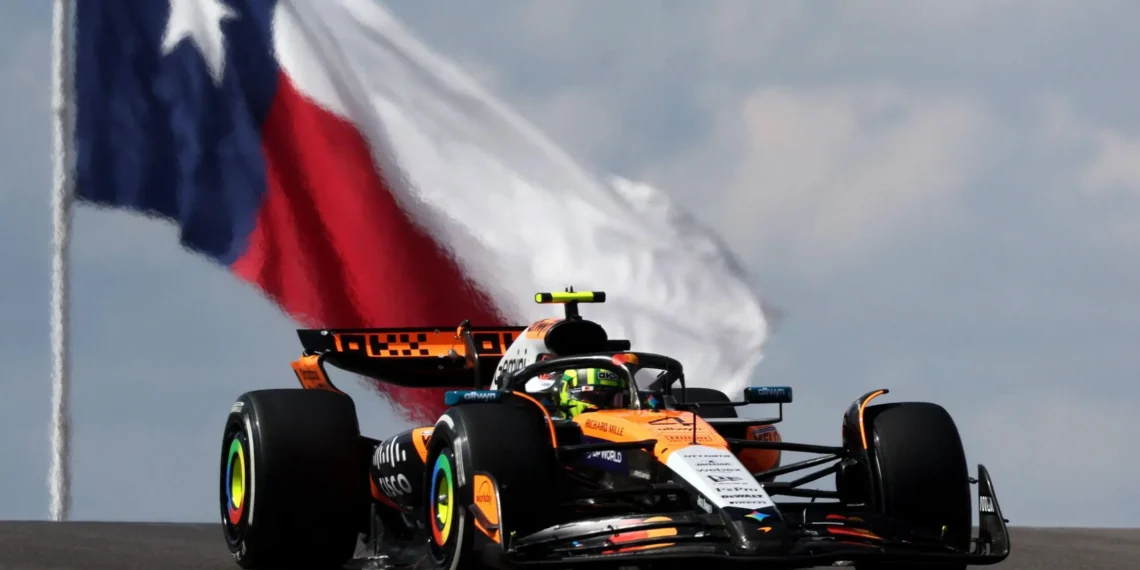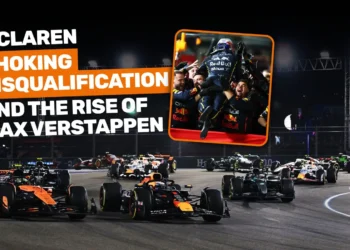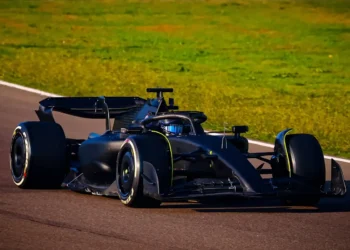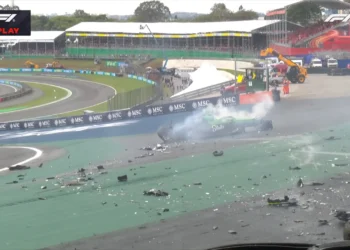McLaren’s Curiously Vague Sanctions: Lando Norris Faces the Heat!
In a startling revelation that’s raising eyebrows in the Formula 1 community, McLaren CEO Zak Brown has boldly claimed that the team is being “transparent” regarding the controversial repercussions facing their star driver, Lando Norris. But hold on—what exactly are these sanctions? The details remain shrouded in mystery, leaving fans and analysts alike hungry for clarity.
Ahead of the much-anticipated United States Grand Prix, the tension is palpable. Both Norris and his teammate Oscar Piastri have acknowledged that Norris is “accountable” for his controversial move during the Singapore Grand Prix. However, the specifics of the consequences remain a tantalizing enigma. Will these sanctions impact Norris’s chances of closing the 22-point gap to Piastri? The silence speaks volumes.
Speaking to Sky Sports F1, Brown attempted to quell the speculation, describing the repercussions as “marginal” and suggesting they would likely go unnoticed. “It is marginal, it is consistent with what happened, which was a racing incident at the start of a grand prix on a track which was somewhat damp,” he explained. However, these claims only add fuel to the fire of curiosity as fans are left wondering: if the repercussions are so trivial, why not just disclose them?
When pressed further about this apparent contradiction in his commitment to transparency, Brown maintained a tight grip on the information, stating, “We are racing against nine other teams, and I don’t think you want to necessarily show your hand on how you go motor racing.” This cryptic defense raises questions about the true nature of McLaren’s competitive strategy.
While Brown insists that the team strives for transparency, he also acknowledges the strategic necessity of keeping certain details private. “We try to be as transparent as possible, but there is a reason why engineering debriefs are only with teams. Otherwise, you can start inviting other teams in,” he noted. This admission underscores the complex balance between openness and competitive advantage in the high-stakes world of Formula 1.
The situation remains precarious for Norris as he navigates both the track and the intricate political landscape of F1. With each passing moment, the tension mounts—will McLaren’s silence on the specifics of these sanctions ultimately work in their favor, or will it backfire as fans demand accountability and clarity?
As the race draws closer, all eyes are on McLaren. Will Lando Norris emerge unscathed, or will these “marginal” repercussions have a more significant impact than anyone anticipates? Stay tuned as this gripping saga unfolds!










